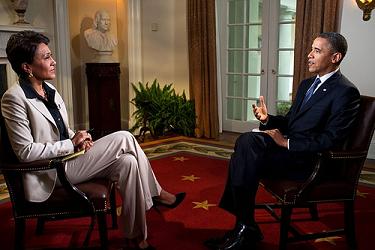“When I think about members of my own staff who are incredibly committed, in monogamous relationships, same-sex relationships, who are raising kids together. When I think about those soldiers or airmen or marines or sailors who are out there fighting on my behalf and yet, feel constrained, even now that ‘Don’t Ask, Don’t Tell’ is gone, because they’re not able to commit themselves in a marriage. At a certain point, I’ve just concluded that for me personally, it is important for me to go ahead and affirm that I think same-sex couples should be able to get married.”
The above statement — made by Barack Obama in an ABC interview on May 9 of this year — will provide a much-needed political boost to his campaign to retain the presidency. Some argue that Obama’s stance will garner more electoral votes because the majority of Americans support same-sex marriage. In fact, U.S. elections are not won because one has better poll numbers on one issue: instead they depend on a political party’s capacity to mobilize its activist base that is to inspire people to volunteer free time to go door to door, put signs up on lawns, and raise additional funds for their candidate. These advocates are not financially remunerated, or are paid little, to give hours of work for their nominee; thus they must be inspired by political ideals. Obama’s statement on behalf of same-sex marriage will suspend memories of his dogmatically centrist decision-making while rekindling the aspirations of the young campaigners who fought for him in his inspiring 2008 “Yes We Can” campaign.
The president’s assertion will also rally his opponents. Republican tacticians were worried that Mitt Romney’s opportunistic persona would not invigorate his base — however, Mr. Obama’s announcement has now catalyzed the most nefarious, well-organized conservative social movement in the world. The assault on his past and potential policies will be unrelenting — but the more that conservatives attack him on same-sex marriage, the more that progressives will be motivated to volunteer for him.
Along with the mobilization of his base, the president’s statement also helps shift the election’s debate from a monolithic focus on the economy to one that is also concerned with cultural values. The Romney campaign has tried to emphasize that the president, unlike the former CEO of Bain, does not have the commercial acumen to revive the economy. This argument is the Republicans’ most effective strategy: an election that was fought on the basis of who has a better business plan — in a country with 12.5 million unemployed people — would not be easily won by the incumbent. If the campaign is fought on a mixture of issues, the president has a much better chance of winning than if the vote is a referendum on his financial stewardship.
Obama’s statement also demonstrates — whether one agrees with him or not — that he is a man of principle. Few people in the United States would contend that Mitt Romney’s personality was anything less than serpentine. Religious conservatives dislike the Republican candidate because they know that he will say anything to garner votes. Romney is an example of what the self-help books would describe as an “outer-directed” type. If the election was solely a vote on ethical character, then Obama would slaughter his Republican opponent. Obama’s declaration was the most courageous statement on behalf of egalitarianism that any U.S. president has uttered since Lyndon Johnson’s decision to support the Civil Rights Act in 1964.
Insofar as unemployment continues to steadily decrease, the cynicism towards Romney, the reframing of the election debate to include cultural questions, and — most importantly — the mobilization of progressive activists, will all help to provide President Obama with a second chance to fulfill the dreams that he so skillfully invokes.
Thomas Ponniah was a Lecturer on Social Studies and Assistant Director of Studies at Harvard University from 2003-2011. He remains an affiliate of Harvard’s David Rockefeller Center for Latin American Studies and an Associate of the Department of African and African-American Studies.
Cultivate Canada’s media. Support rabble.ca. Become a member.



